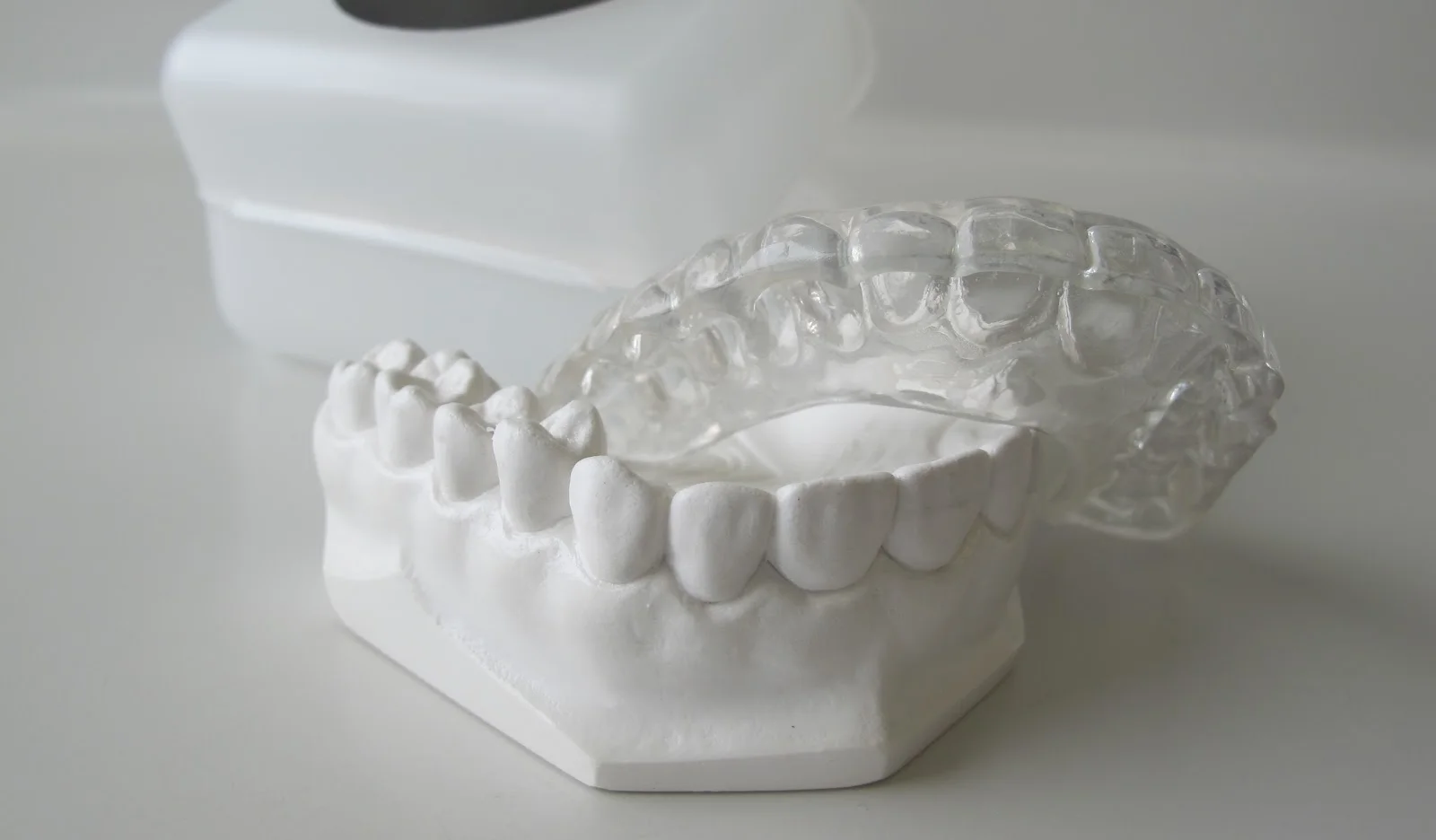What is Bruxism?
Bruxism is the grinding of teeth. Biting forces in bruxism are significantly stronger than regular chewing. These biting forces can wear down teeth and joints as well as create jaw muscle soreness.
How common is Bruxism?
Bruxism occurs in about one in every 10 people. Most dental patients are unaware of their bruxism, largely because it occurs at night while we are sleeping. It is usually the patient’s spouse who notices the bruxism because they can see and hear the grinding of teeth.
What are some signs of Bruxism?
Signs of Bruxism include bulging size of the chewing muscles, mobility of teeth, wear and fracture of teeth, fillings, crowns and dentures, as well as recession of gums.
What is Clenching?
Clenching is a bad habit that is difficult to control. This habit involves the constant application of force by the bottom and top teeth. Clenching has many of the signs also found in bruxism.
What is a Nightguard?
A nightguard is a dental appliance made from a hard acrylic that is typically worn at night while sleeping. When worn properly, nightguards can make a world of difference for bruxers and clenchers by reducing the wear on teeth, as well as preventing the fracture and failure of crowns, fillings and dental implants.
For any questions about dental implants, feel free to ask!


